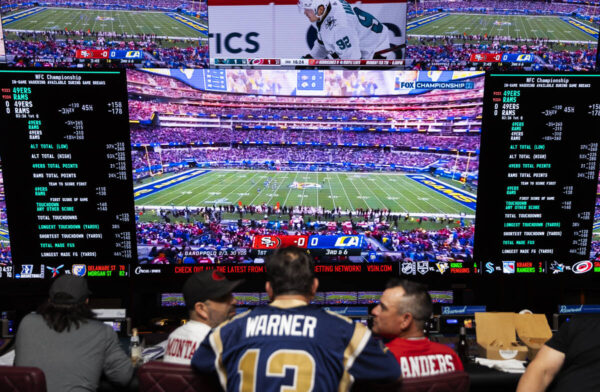Over the past decade, the betting industry has gone through significant changes due to technological advancements and changing regulations. As a result, the industry has seen an increase in the number of online betting platforms, mobile applications, and new payment methods. The future of betting is bound to become even more innovative, with the integration of artificial intelligence, virtual and augmented reality, blockchain technology, and other advancements that will revolutionize the betting experience.

Technological Advancements
The betting industry has already experienced a significant shift towards digital platforms. The rise of mobile applications has made it easier for players to place bets on the go. Many of these applications have features such as live streaming, in-play betting, and personalized advertisements that enhance the overall user experience.
One of the most exciting technological advancements in the betting industry is the use of artificial intelligence. AI is being used to analyze data, create personalized betting experiences, and even develop predictive models that can help players make more informed bets. AI is also being used to identify and prevent problem gambling by analyzing the behavior of players and providing appropriate interventions.
Virtual and augmented reality will also play a significant role in the future of betting. VR can be used to create immersive experiences that transport players to a virtual betting environment. AR can be used to enhance the betting experience by providing real-time data and statistics about teams and players.
Changing Regulations
The betting industry has always been subject to regulations, but these regulations are changing rapidly. As more countries legalize online gambling, the need for appropriate regulations is becoming increasingly important. Regulations are now being put in place to protect players, prevent problem gambling, and ensure that betting platforms operate fairly.
One of the most significant changes in regulation has been the tightening of anti-money laundering (AML) laws. Many countries now require betting platforms to implement AML measures such as customer due diligence and suspicious transaction monitoring. This helps prevent money laundering and other financial crimes within the betting industry.

The issue of responsible gambling is also becoming an area of focus for regulators. Many betting platforms now have tools that allow players to set limits on their betting activities or even self-exclude entirely. These tools are designed to help prevent problem gambling and ensure that players gamble responsibly.
The future of betting is set to be even more technologically advanced and regulated. The integration of AI, VR, and blockchain technology will revolutionize the betting experience, while changing regulatory landscapes will ensure that the industry is safe and fair for all. The betting industry has always been an exciting and fast-paced industry, and it will undoubtedly continue to evolve in the coming years.












